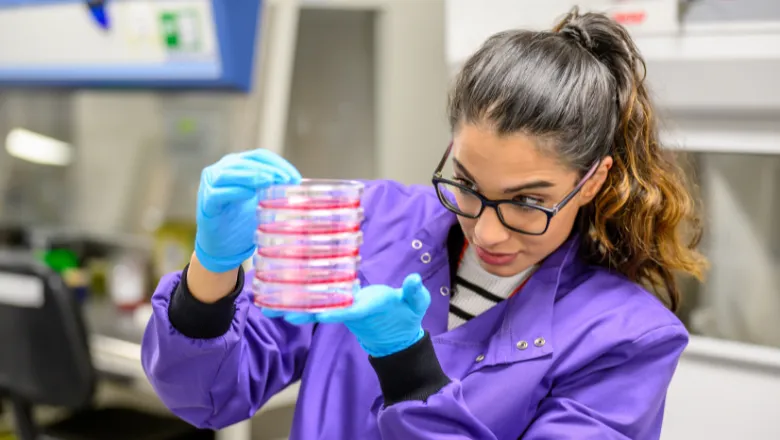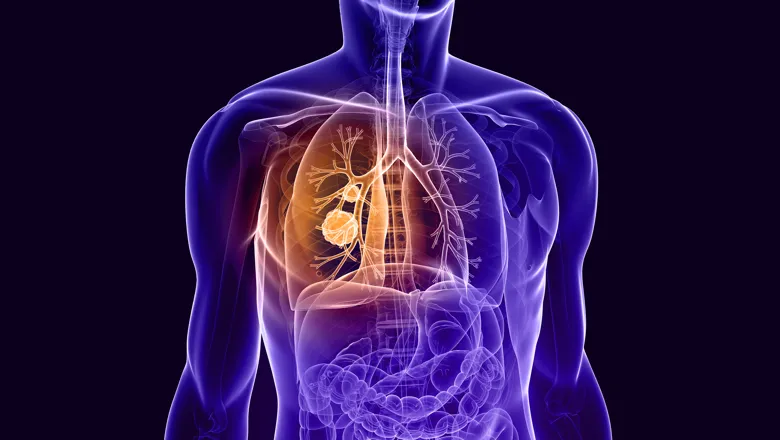
Professor Gilbert Fruhwirth
Professor of Molecular Imaging
Research interests
- Imaging sciences
Contact details
Biography
Research - Imaging Therapies and Cancer
The Fruhwirth Lab is focused on contributing to the development of new and the improvement of existing therapeutics. The team uses diverse imaging approaches that span multiple lengths scales ranging from whole-body to microscopic levels and applies them to oncology and immunology. They focus on cell-based immunotherapies and cancer metastasis.
Biographical details
Excited by the fundamental molecular processes governing physiology and pathophysiology, Professor Gilbert Fruhwirth studied Chemistry with a focus on Biochemistry and Biotechnology and subsequently embarked on a PhD in Biochemistry and Cell Biology at Graz University of Technology (Austria) under the supervision of Professor Albin Hermetter. At that time, his research experience spanned biophysical chemistry, biochemistry and cell biology. Fascinated by cancer cells’ ability to invade distant tissues, Prof Fruhwirth went abroad as a postdoc to study these processes in whole organisms and joined Professor Tony Ng’s lab at the Randall Centre for Cell and Molecular Biophysics at King's College London, and later the Comprehensive Cancer Imaging Centre at King’s College London and UCL. There, he studied protein-protein interactions in metastatic cancer cells and the consequences of chemokine receptor mutations in cancer metastasis. Furthermore, he developed intravital FRET/FLIM imaging technologies and used multi-modal imaging to shed light on the same processes in live animals.
In 2013, Prof Fruhwirth was appointed Lecturer in Imaging Biology at what is now the School of Biomedical Engineering and Imaging Sciences at King’s College London. This position enabled him to develop his own independent research programme (see fruhwirthlab.org) within an environment spanning basic and clinical science. In 2016, Prof Fruhwirth obtained Tenure and in summer 2018, he was promoted to Senior Lecturer in Imaging Biology.
At the beginning of 2021, Prof Fruhwirth and his team joined the Comprehensive Cancer Centre at King’s College London where they intensified their research programme in advanced therapies in immunology and oncology. In 2022, Prof Fruhwirth was promoted to Reader in Imaging Biology, and in 2025 was promoted to Professor of Molecular Imaging.
Research

The Multiscale Biofilm Research Hub (MBRH)
The Multiscale Biofilm Research Hub (MBRH) has been established to promote interdisciplinary interactions and focus microbial biofilm related research at King’s.

Synthetic biology and technological advancements
Biofilms are being studied to inspire the development of new materials and other technologies, and new approaches to probe biofilm formation.
Project status: Ongoing

Imaging Therapies and Cancer
Over 90% of cancer deaths result from cancer spread within the body, hence improving its mechanistic understanding is crucial for developing better therapies.
News
New study themes introduced for Biomedical Science students at King's
This year, students on our BSc Biomedical Science programme chose from six new study themes aligned with the research within the Faculty of Life Sciences &...

Scientists identify Achilles heel of lung cancer protein
Researchers have shown for the first time that a crucial interface in a protein that drives cancer growth could act as a target for more effective treatments.

New research finds way to track living drugs in the body by imaging
New method tracks living drugs within the body by imaging

Research

The Multiscale Biofilm Research Hub (MBRH)
The Multiscale Biofilm Research Hub (MBRH) has been established to promote interdisciplinary interactions and focus microbial biofilm related research at King’s.

Synthetic biology and technological advancements
Biofilms are being studied to inspire the development of new materials and other technologies, and new approaches to probe biofilm formation.
Project status: Ongoing

Imaging Therapies and Cancer
Over 90% of cancer deaths result from cancer spread within the body, hence improving its mechanistic understanding is crucial for developing better therapies.
News
New study themes introduced for Biomedical Science students at King's
This year, students on our BSc Biomedical Science programme chose from six new study themes aligned with the research within the Faculty of Life Sciences &...

Scientists identify Achilles heel of lung cancer protein
Researchers have shown for the first time that a crucial interface in a protein that drives cancer growth could act as a target for more effective treatments.

New research finds way to track living drugs in the body by imaging
New method tracks living drugs within the body by imaging

